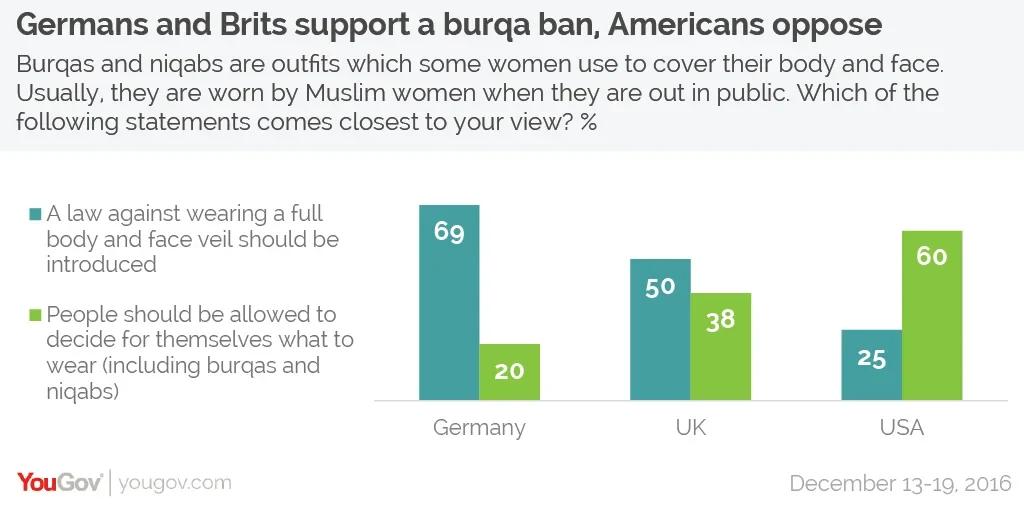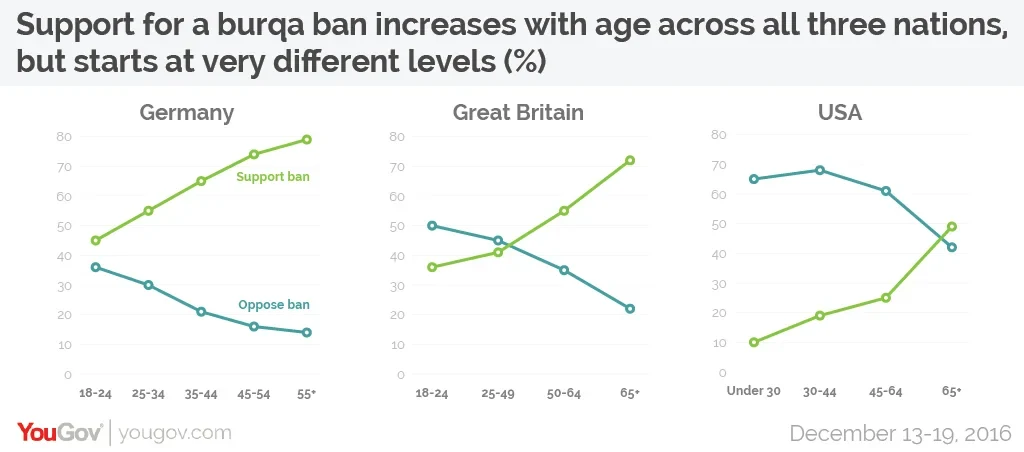New data from a tri-national YouGov survey sees a huge majority of Germans, as well as half of Brits, supporting a ban on the burqa
On Monday last week, Morocco became the latest country to take steps against the burqa. The government banned the sale, production and import of the burqa, giving retailers 48 hours to destroy their stocks.
Although reports were unclear on whether wearing the garment would be banned, the move nonetheless indicates a hostility towards the garment with unofficial reports saying the move was made for security reasons.
The burqa is a piece of clothing that stirs controversy in many countries. Less than two months ago the Dutch MPs voted to ban wearing burqa in public places. Should the vote become law the Netherlands will be the fourth European country to ban the garment, behind France, Belgium and Bulgaria. Swiss MPs have also voted for a ban, although it has yet to be implemented, and there are movements to restrict such clothing in Germany, Norway and Italy.
Now, a new YouGov tri-national study has looked at attitudes to full body and face veils in the US, Great Britain and Germany.
Germans are the staunchest opponents of burqas. Nearly seven in ten (69%) say that there should be a law against wearing a full body and face veil – a seven point increase since this question was asked in August last year. One in five Germans oppose a ban, down seven points in six months.

In the US, where a ban is strongly opposed, there has been essentially no shift in opinion since the last time the question was asked there in August. A previous survey run in Britain at this time had support for a ban at 57%, although the different question phrasing means that the results aren’t directly comparable.
One of the strongest indicators of support for a ban is a person’s age: in each of the three countries support for a burqa ban increases as people get older. In Britain, only 36% of 18-24 year olds would support a ban, rising to 72% of 65+ year olds. People aged 18-49 are more likely to oppose a ban than support one.

By contrast, every single age group in Germany is more likely to support a ban than oppose one. In the United States, on the other hand, only those aged 65 or older are more likely to support a ban.
The research shows that men and women support the ban in roughly equal measure. In Germany 69% of both men and women support a ban, whilst in Britain these figures are 51% for women and 49% for men. In the US 27% of men and 24% of women support the ban, although women are more likely than men to oppose the ban, a gender distinction that does not occur in the European nations.
Photo: PA









